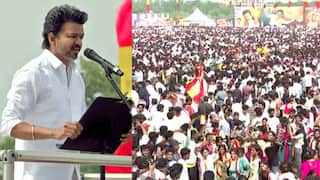UPSC Mains Exam 2024: Last-Minute Preparation Tips For Exam Success
UPSC Civil Services Mains Examination 2024 will conducted from September 20 to September 29, 2024.

UPSC Mains Exam: Last-Minute Tips For Effective Exam Preparation
1. Balance Dynamic and Static Content
A well-rounded preparation strategy combines both static and dynamic content. Static content forms the backbone of your answers, providing the essential facts and theories. Dynamic content, on the other hand, involves current affairs and recent developments that add relevance and depth to your responses.
- Static Content: Focus on revising key concepts from standard textbooks. For instance, in GS Paper 1, ensure you have a solid understanding of the Indian National Movement and major historical events. In GS Paper 2, revisit constitutional provisions and landmark Supreme Court judgments.
- Dynamic Content: Integrate recent news and developments into your answers. For example, if you’re revising GS Paper 3, link economic theories with the latest government policies or recent economic surveys.
2. Revise Standard Books First
Standard reference books are invaluable for a thorough understanding of subjects. In these final days, prioritize revising these sources to reinforce your foundational knowledge.
- GS Paper 1 (History and Geography):Revisit books like NCERT History texts, Bipin Chandra for modern history, and Majid Husain for Geography. Summarize key events, dates, and geographical phenomena.
- GS Paper 2 (Polity and Governance):Go through “Indian Polity” by M. Laxmikanth and supplement with recent case laws and amendments. Focus on understanding the nuances of the Constitution and the functioning of various governmental bodies.
- GS Paper 3 (Economy, Environment, and Security):Use “Indian Economy” by Ramesh Singh and Shankar IAS for economic concepts. For environment-related topics, refer to Shankar IAS’s Environment books and stay updated with recent environmental policies.
3. Keep Writing Answers for Muscle Memory
Regular answer writing is essential for developing speed, structure, and clarity. This practice helps in ingraining the format and improving your ability to present information succinctly.
- Daily Practice: Dedicate at least two to three hours daily to answer writing. Choose previous year's questions or sample papers to simulate exam conditions.
- Feedback Loop: After writing, critically assess your answers or seek feedback from mentors to identify areas of improvement. Focus on enhancing the introduction, coherence, and conclusion of your responses.
4. Specific Suggestions And Examples For Each Paper
Tailoring your preparation to each paper’s unique requirements can significantly enhance your performance. Here are specific strategies and examples for GS Papers 1, 2, 3, Essay, and Ethics.
GS Paper 1: History and Geography
- Focus Areas: Key historical events, cultural heritage, physical geography, and recent geographical developments.
- Example Question: “Discuss the impact of the Non-Aligned Movement on India's foreign policy.”
- Approach: Start with the historical context, outline India’s stance during the Cold War, and conclude with the movement’s long-term effects on contemporary foreign policy.
GS Paper 2: Polity and Governance
- Focus Areas: Constitutional provisions, governance mechanisms, public administration, and recent legislative changes.
- Example Question: “Evaluate the role of the Election Commission in strengthening democracy in India.”
- Approach: Begin with the Election Commission’s constitutional mandate, discuss its functions and recent initiatives like the introduction of VVPAT, and analyze its impact on electoral transparency and fairness.
GS Paper 3: Economy, Environment, and Security
- Focus Areas:Economic theories, government policies, environmental issues, and national security challenges.
- Example Question:“Analyze the economic implications of the recent GST reforms in India.”
- Approach:Explain the objectives of GST, discuss the changes it brought to the taxation system, and evaluate its impact on different sectors of the economy using recent data.
Essay Paper
- Focus Areas: Clarity of thought, coherent structure, relevance, and critical analysis.
- Example Topic: “Sustainable Development in India”
- Approach: Outline the concept of sustainable development, discuss its importance for India, provide examples of successful initiatives, and suggest ways to overcome existing challenges.
Ethics Paper (GS Paper 4)
- Focus Areas: Ethical theories, integrity, probity, and application of ethics in public administration.
- Example Question: “Discuss the importance of ethical governance in the public sector.”
- Approach: Define ethical governance, highlight its significance in ensuring transparency and accountability, and provide real-life examples of ethical dilemmas and their resolutions in the public sector.
5. Take Care Of Mental Health
Maintaining your mental health is paramount during this intense preparation phase. Stress and anxiety can impede your performance, so it’s essential to incorporate practices that promote mental well-being.
- Mindfulness and Meditation: Spend 10-15 minutes daily practicing mindfulness or meditation. Techniques like deep breathing or guided meditation can help calm your mind and improve focus.
- Positive Affirmations: Use positive affirmations to build self-confidence. Remind yourself of your preparedness and capabilities.
- Stay Connected: Maintain communication with friends and family for emotional support. Sharing your thoughts and concerns can alleviate stress.
6. Manage Stress, Sleep Cycles, and Anxiety Control
A balanced routine that includes adequate rest, physical activity, and relaxation is crucial for peak performance.
- Sleep Schedule: Aim for 7-8 hours of quality sleep each night. A consistent sleep routine helps regulate your body’s internal clock, ensuring you wake up refreshed and alert.
- Physical Activity: Incorporate light exercises like yoga, walking, or stretching into your daily routine. Physical activity releases endorphins, which reduce stress and enhance mood.
- Healthy Diet: Maintain a balanced diet rich in fruits, vegetables, lean proteins, and whole grains. Avoid excessive caffeine and sugary snacks, which can lead to energy crashes and heightened anxiety.
- Breaks and Downtime: Schedule short breaks during study sessions to rest your brain.
(The Author is a former IRS Officer & Chief UPSC Mentor at Testbook)
[Disclaimer: The opinions, beliefs, and views expressed by the various authors and forum participants on this website are personal and do not reflect the opinions, beliefs, and views of ABP News Network Pvt Ltd.]
Education Loan Information:
Calculate Education Loan EMI





































